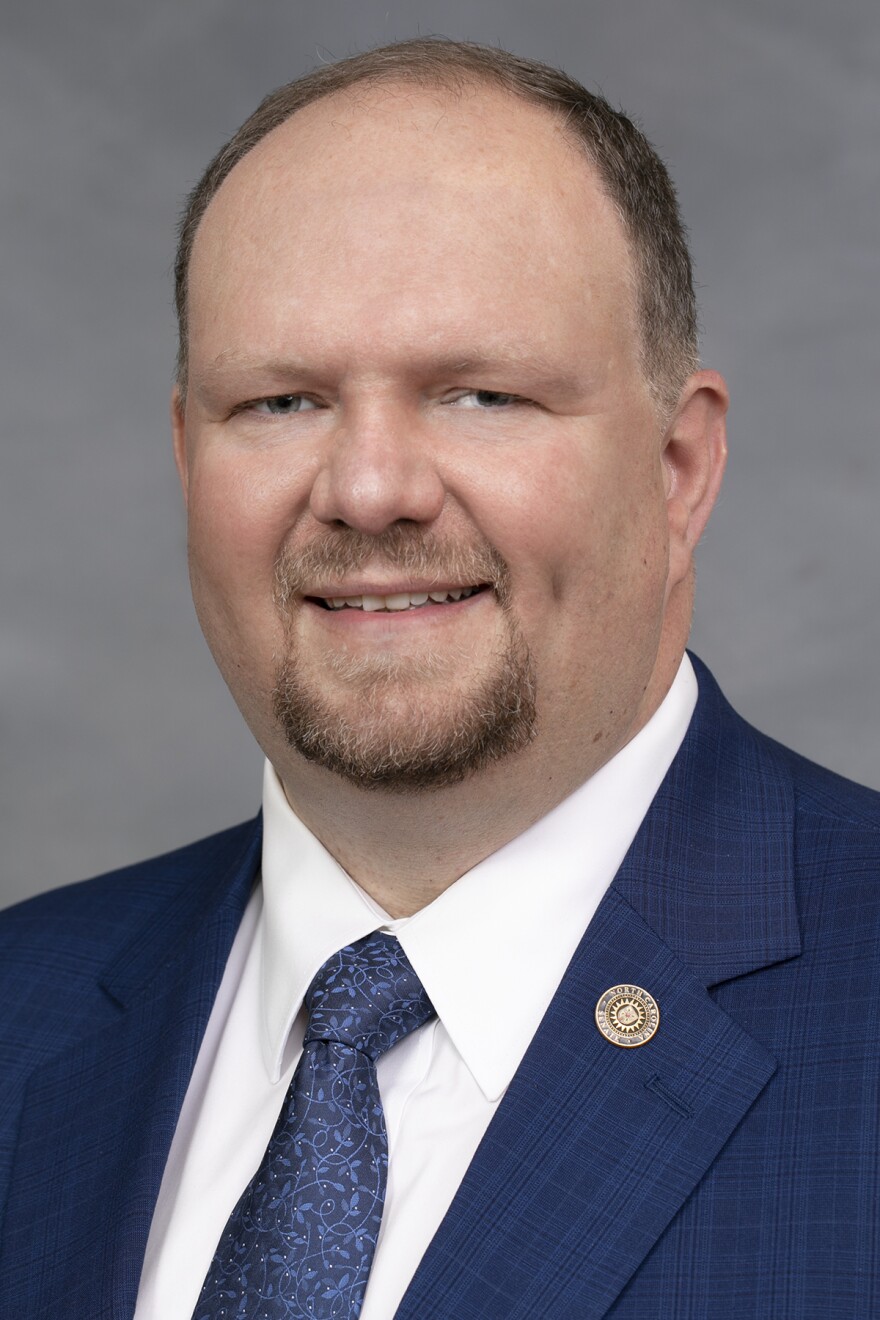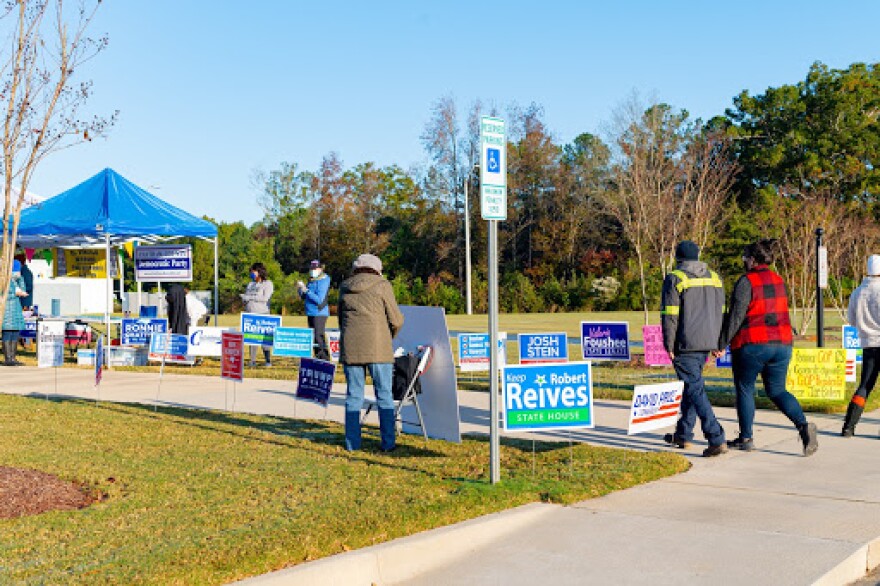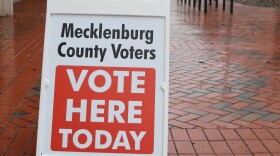Republicans in the North Carolina General Assembly are weighing proposals for changes to state elections law, including same-day registration. The ideas under consideration have voting rights advocates concerned.
"We feel very strongly that nothing should be done to make voting harder," said Bob Phillips, executive director of government watchdog group Common Cause North Carolina, and a frequent presence at the state legislature.
Phillips noted that there is no evidence of widespread voter fraud in North Carolina that calls into question election outcomes.
Phillips said he and others in the voting advocacy community are particularly concerned that Republican lawmakers will target same-day registration as well as the state's no-excuse absentee-by-mail balloting.
Under state law, eligible residents may register at one-stop early voting sites and cast ballots on the same day. And in North Carolina, all eligible voters may cast absentee-by-mail ballots.
Senator Ralph Hise, a Republican from Western North Carolina, and co-chair of the Redistricting and Elections Committee, confirmed members of his chamber are looking at various proposals.
"I don't know that it's something ready for prime time this week," he said. "But I think we've been pretty clear from the beginning that these are things the Elections Committee is going to address from the start of the session."

Hise said the recent state Supreme Court decision reinstating a mostly GOP-backed photo ID requirement for voting altered the legal landscape for lawmakers and prompted them to review North Carolina's elections laws. Last year, the North Carolina Supreme Court, then made up of a narrow majority of Democratic justices, upheld a lower court ruling striking down the ID law because it would disparately — and unconstitutionally — affect Black voters.
This year, after Republican justices won a majority on the high court, GOP lawmakers sought a review of that decision, and the ID law was reinstated.
"Some things we've talked about for a long time, about how absentee has come back in, how we can secure our election process, the concept of ERIC has been floating, so all those are kind of coming together into one," Hise said, indicating that the scope of the legislation under consideration could be sweeping.
ERIC stands for Electronic Registration Information Center, the multi-state membership organization established to prevent voter fraud. Members share information and data on the movement and death of voters. Republican lawmakers have drafted legislation to block North Carolina from joining the group, just a year after they gave state elections officials the go-ahead to join.
State legislators’ turnaround on whether North Carolina should join ERIC comes just a year after they approved funding for joining the group, and as the organization endures partisan attacks from the right. Among them are baseless claims that ERIC serves liberal interests.
Hise denied that GOP lawmakers are likely to try and scale back North Carolina's one-stop early voting period, which extends over more than two weeks. Even though shortening early voting is something he would support, Hise said in response to past GOP efforts to truncate early voting, the federal courts have indicated such a move would not hold up under litigation.
"I think it has been clear from the Fourth Circuit that once a matter is established in early voting there really are not a lot of options for us to go back at that point," he said.
Over in the House, Election Law and Campaign Finance Reform Committee Chairman Grey Mills, R-Iredell, said the emergence of a sweeping elections measure isn't imminent but lawmakers must always see where they can make improvements to state elections laws.
"If we can make it better then we will make it better," Mills said, adding that he meets weekly with people from both sides of the political aisle to discuss elections issues.
For Bob Phillips of Common Cause, and other voting rights advocates, the concern is that lawmakers like Mills might be meeting with 2020 election deniers like Cleta Mitchell.
Mitchell lives in North Carolina and is infamous for playing a role in trying to get Georgia elections officials to unearth enough votes for Donald Trump to overturn the legitimate outcome of the 2020 presidential election.
"I'm just not certain that it's really North Carolina-born ideas based on problems in our state," Phillips said about what is driving GOP efforts to revise elections laws.
Representative Mills denied personally meeting with Mitchell but Senator Hise said he has met with her as well as advocates from all sides. But Hise added that such meetings would not necessarily be evident in any forthcoming legislation.
"I don't think that you'll see any kind of concept that the legislature is taking wholesale of any of the groups," Hise asserted.
Hise did not offer any specifics about when major elections legislation would surface. He did say that it could come later this year in a special session dedicated to redistricting.








